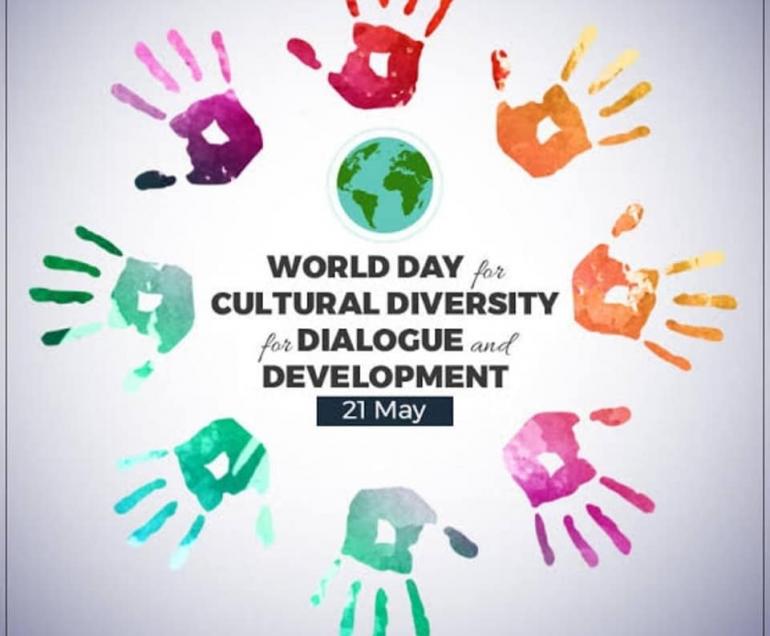World Day for Cultural Diversity for Dialogue and Development

Today is World Day for Cultural Diversity for Dialogue and Development.
Cultural diversity is found in every country in the world. Also, three-quarters of the world’s major conflicts have a cultural dimension. Bridging the gap between cultures is urgent and necessary for peace, stability, and development.
Cultural diversity is a driving force of development, not only with respect to economic growth but also as a means of leading a more fulfilling intellectual, emotional, moral, and spiritual life.
This is captured in culture conventions, which provide a solid basis for the promotion of cultural diversity. Cultural diversity is an asset that is indispensable for poverty reduction and the achievement of sustainable development.
Acceptance and recognition of cultural diversity – in particular through innovative use of media and Information and Communications Technologies – are conducive to dialogue among civilizations and cultures, respect and mutual understanding.
In 2001, UNESCO adopted the Universal Declaration on Cultural Diversity. In December 2002, the UN General Assembly, in its resolution 57/249, declared May 21 today to be the World Day for Cultural Diversity for Dialogue and Development.
In 2015, the Second Committee of the UN General Assembly unanimously adopted the resolution on Culture and Sustainable Development, affirming culture’s contribution to the three dimensions of sustainable development, acknowledging further the natural and cultural diversity of the world, and recognizing that cultures and civilizations can contribute to, and are crucial enablers of, sustainable development.
The day provides us with an opportunity to deepen our understanding of the values of cultural diversity and to advance the four goals of the UNESCO Convention on the Protection and Promotion of the Diversity of Cultural Expressions adopted on 20 October 2005:
- Support sustainable systems of governance for culture
- Achieve a balanced flow of cultural goods and services and increase mobility of artists and cultural professionals
- Integrate culture in sustainable development frameworks
- Promote human rights and fundamental freedoms
Placing culture at the heart of development policy constitutes an essential investment in the world's future and a pre-condition to successful globalization processes that take into account the principles of cultural diversity.
Development is inseparable from culture. In this regard, the major challenge is to convince political decision-makers and local, national and international social actors to integrating the principles of cultural diversity and the values of cultural pluralism into all public policies, mechanisms and practices, particularly through public/private partnerships.
The aim is, on the one hand, to incorporate culture into all development policies, be they related to education, science, communication, health, environment or cultural tourism and, on the other hand, to support the development of the cultural sector through creative industries. By contributing in this way to poverty alleviation, culture offers important benefits in terms of social cohesion.
Culture is who we are and what shapes our identity. No development can be sustainable without including culture.
The transformative power of culture for social inclusion, resilience and sustainable development is increasingly recognized as a key enabler for Sustainable Development.
The 2030 Agenda for Sustainable Development marked a major turning point in global efforts to address development challenges and opportunities, as the local authorities and communities take an increasingly important role in this global momentum alongside international and national actors and other relevant stakeholders.
Culture is also an essential component of human development, representing a source of identity, innovation and creativity for all, it provides sustainable solutions to local and global challenges.
Radio Veritas Asia (RVA), a media platform of the Catholic Church, aims to share Christ. RVA started in 1969 as a continental Catholic radio station to serve Asian countries in their respective local language, thus earning the tag “the Voice of Asian Christianity.” Responding to the emerging context, RVA embraced media platforms to connect with the global Asian audience via its 21 language websites and various social media platforms.











